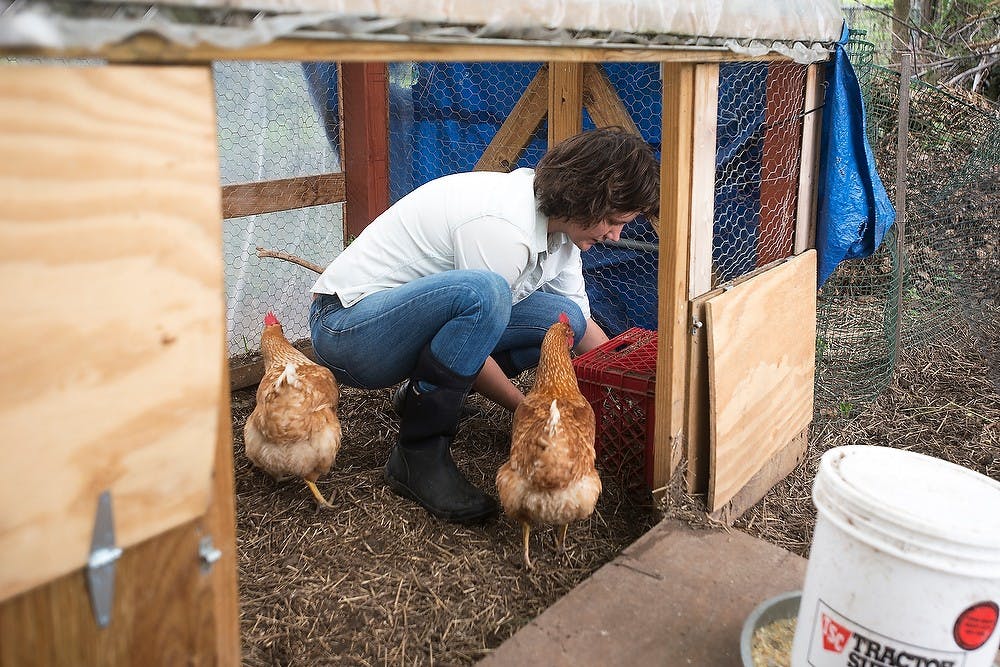The changes, adopted earlier this year by the Michigan Department of Agriculture and Rural Development, or MDARD, categorizes those living within one-eighth of a mile from 13 or more houses as having property unsuitable for maintaining livestock.
Before the changes, those living in residential areas were loosely protected by the guidelines and could often maintain livestock regardless of a city’s ordinance.
The Right to Farm Act was drafted in 1981 to protect rural farmers from lawsuits stemming from nuisance complaints from urban residents moving into the country. Farmers are protected under the act if they follow a series of guidelines known as the Generally Accepted Agricultural and Management Practices, but the changes could alter the scope of the protections.
Michigan Small Farms Council Vice President Randy Zeilinger argues stripping residential-area farmers of the protections will subject them to inflexible local ordinances.
“It’s a fundamental right to have a choice in how you provide for your family and for your friends and your neighbors,” Zeilinger said. “We’re trying to correct these food deserts that we see in large urban cities and even in the suburbs your only source of food is the local grocery store that may or may not carry the best products.”
MDARD Chief Deputy Director Gordon Wenk said many municipalities were confused about whether local government trumped Right to Farm protections for those maintaining livestock in residential areas.
Wenk said these changes are meant to give local governments clarity and allow them to tailor their own livestock ordinances to their unique situations.
“Let’s allow the local communities to make those decisions around what makes sense for their local communities and what the neighbors want,” Wenk said.
In East Lansing, residents can maintain up to four laying hens in their backyard, so long as they obtain a permit.
East Lansing residents Jackie Cosner and Ener Almanza keep four laying hens in their backyard, along with gardens in the front and back to provide food for family and friends and to sell to the community.
Almanza said urban farming not only cuts down on grocery bills but it also provides their household with a buffer from turbulence in the food market.
“In 2009 and 2010, we had drastic increases in food prices across the world and we didn’t really feel any of that, because we were growing our own food during the season and canning,” he said.
As droughts, such as the one in California, and other acts of nature potentially limit the food supply and increase food prices, Almanza said many will turn to their backyards for food.
“I think we’re going to have to go away from what the conventional thought is, that we have places and destinations for growing food,” he said. “We’re going to have to go back to farming our backyard.”
Editor's Note: The original version of this article incorrectly reported changes were made to Michigan's Right To Farm Act. The article has been changed to reflect that changes were made the act's implementing regulations, the Generally Accepted Agricultural and Management Practices, not the act itself. The article has also been changed to reflect that the changes affect primarily commercial livestock, as opposed to livestock generally.







